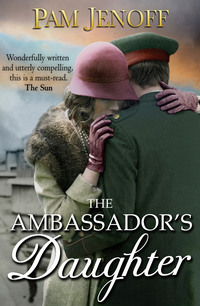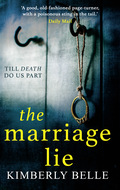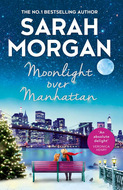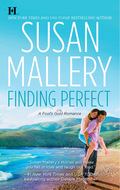Kitap dosya olarak indirilemez ancak uygulamamız üzerinden veya online olarak web sitemizden okunabilir.
Kitabı oku: «The Ambassador's Daughter», sayfa 3
“I saw you at the arrival parade for Wilson,” I say, unable to hold back. Krysia stares vaguely over my shoulder and for a minute I doubt my memory, wondering if the woman at the parade had been someone else. “You left in the middle,” I press. The statement comes out abrupt and intrusive.
“I had somewhere to be.” She does not elaborate.
Two stops later the doors open and I follow Krysia back up onto the street, breathing in the fresh air deeply to clear the dankness from my lungs. We are on the Left Bank now, with its narrow, winding streets. This is Paris as I knew it as a girl, buildings leaning close, whispering secrets to one another. Parisians, still in the habit of conserving from the war, have shuttered and darkened their houses and only every other streetlight splutters in an attempt to save electricity. A low fog has rolled in from the river now, swirling eerily around us.
A few minutes later, we reach the boulevard du Montparnasse. The wide avenue is as bright as midday, light spilling forth from beneath the café awnings. A door to a café opens and a woman’s high tinkling laugh cascades over the music. La Closerie des Lilas reads the painted sign on the glass window of the café, smaller print advertising the billiards and rooms available on the floors above.
I follow Krysia inside, where she weaves through a maze of tables without waiting to be seated, steering toward the high mahogany bar with red leather stools. Shelves filled with bottles climb to the ceiling of the mirrored wall behind it. The room is warm and close, plumed with clouds of cigarette smoke. Ragtime music from an unseen gramophone plays lively in the background, mixing with boisterous conversation in French, German and a handful of other languages.
Behind the bar, a skinny brown-haired boy, eighteen or nineteen maybe, with coal-black eyes, stacks beer steins. Feeling his gaze follow me, I flush. I’m still not used to the kind of attention young women receive in Paris, so much more admiring and less veiled than in London or Berlin.
We reach an alcove behind the bar, not quite set off enough from the main part of the café to be its own room, a few tables with an odd assortment of chairs thrown haphazardly around them. A half-decorated Christmas tree lists in the corner.
Krysia pulls up two chairs to one of the tables, where a handful of men are gathered. I await the introductions that do not come, then sit down beside her. The marble table is littered with overflowing ashtrays and empty wine bottles and an untouched carafe of still water. Two candles in a brass dish burn at the center, melting together in a molten pool. The only woman, Krysia looks out of place in this group of rough men. But she chats easily, as if among family. The gathering crackles with conversation. Across from me two men are debating how the war will be remembered in the literature, while to my left there is a lively discussion about the future of Palestine. Ideas rise like champagne bubbles around me and I struggle to keep up, to grasp one before it is displaced by the next
“Is Marcin coming?” one of the men asks in accented French. His sideburns, wide and deep, lash onto his cheeks like daggers. He wears a red silk scarf around his neck, knotted jauntily.
Krysia shakes her head. “He’s playing a wedding at Chartres.”
The man snorts. “That’s a disgrace.”
“One has to eat,” Krysia replies vaguely, then turns to me. “Marcin is my husband.”
“Oh.” Krysia seems so solitary and stoic, an island unto herself. It is hard to imagine her needing or living with anyone.
“He plays cello.”
An older man, fiftyish and portly with a shock of white hair, pads over to the table and places fresh, foaming mugs of beer in front of us. “She’s too modest.” His vowels are rounded, as though his cheeks were full, a Russian accent unmuted by his time in France. “Marcin is one of the foremost cellists in Europe,” the man informs me. He begins twirling a coin between the knuckles of his left hand, index finger, middle, ring, pinky, and then back again without stopping. His fat fingers, each a sizable sausage, are surprisingly nimble. “He should be playing filled concert halls, not background music for wedding guests munching on canapés and cheap wine.”
The red-scarfed man beside me raises his glass. “Hear, hear.” His words are slurred.
Krysia pats the arm of the man who has handed us our drinks. “Margot, this principled fellow is Ignatz Stein.” I am surprised to hear her introduce the barman as a friend. “He owns this place.” I take a sip too large, caught off guard by the full, cold taste of hops, carrying me back to the fields of Bavaria in late harvest when Papa and I hiked there years earlier. The extra liquid spills out of the corner of my mouth. I reach for a napkin and, seeing none, furtively blot at the moisture with my sleeve, hoping no one will notice. Krysia turns to the man seated beside her. “And this is Deo Modigliani.”
“The artist?” I cannot help but blurt out, awestruck. I have studied his work, seen it in the finest galleries and museums. Yet here he is sitting in this nondescript café and drinking beer like everyone else. I’ve heard of this Paris, artists and writers gathering in the Montparnasse cafés to drink and share ideas. It exists beneath the surface, separate and secret from the pomp and formality of the conference and everyday life overhead.
Krysia does not answer but turns her attention to a debate on the future of Alsace-Lorraine that has heated up at the far end of the table. “Surely the territory will be returned to France now.” I have not been introduced to the man who is speaking.
“If the Americans and the French don’t tear one another apart first,” Krysia interjects. I nod. The conference is just days old and things had reportedly gotten quite contentious already.
“But the Americans …”
“It is quite easy to have views from halfway around the globe.” Her observation is unfair and yet at the same time true. The Americans came to help with the fighting and they are here to help make the peace. Yet they will return home, largely unscathed by what is decided here. So why are they at the center of it?
She continues, “If the conference is to be democratic, then why is so much being done by the Big Four behind closed doors? And where is Russia?” I watch in awe as Krysia speaks her mind in a forthright way, mixing logic and passion in the way of a woman long accustomed to debate. Holding court, she appears ethereal, bathed in light. I have seldom heard women offer up opinions and have never seen them received with such respect. There is a keen intensity to the way she speaks, her voice low and melodic and commanding, that makes her somehow beautiful.
“Did you hear a kitchen boy from the Orient sent Wilson a petition for his country’s freedom?” Modigliani offers, changing the subject.
“Ask Margot about it,” Krysia says, gesturing toward me with her head. “I was playing in one of the salons, but she saw the whole thing.”
“You were at the Wilson reception?” The barman, Ignatz, comes up to my chair, regarding me with newfound interest.
“Yes, my father is with the conference.”
“Her father is Friedrich Rosenthal,” Krysia adds with emphasis. Heads nod in recognition.
“Your father doesn’t write under a nom de plume,” Ignatz observes, still twirling a coin.
“No, why should he?”
“I think Ignatz only meant that not every writer has the courage to speak of such things in his own name,” Krysia clarifies. Courage. I recall the news from back home in Berlin, the violence that had erupted as a result of the civil unrest. Politicians has been shot for no more than their views. Could Papa and the other academics be in similar danger?
Modigliani leans in, his artist eyes soulful. “And what are you, ma petite?”
“Deo,” Krysia warns in a low voice, protective like an older sister.
I am uncertain how to answer. “I’m engaged,” I offer. My response is met with blank stares around the table.
“I believe,” Krysia prompts gently, “that he was asking what you are planning to do now that the war is over?” Krysia’s clarification is of little help. Before the war, my future was clear—marriage to Stefan, the biggest question being whether to live with Papa indefinitely or save for an apartment of our own. That world is gone now. But still the old ties and expectations remain.
“I don’t know,” I confess finally. The room is warm and wobbly from the beer.
“How exciting.” I search for sarcasm in her voice and find none. “Starting fresh, reborn out of the ashes. The war was horrible, but it has shaken things up, given each of us a chance to stake a claim for what she wants.”
“They say that Kolchak’s Whites are making gains at Perm …” Ignatz offers, turning the topic to Russia. I sit back, grateful to no longer be the focus. But I find the topic unsettling. Russia has become a wild land since the czar was taken down, his whole family murdered. The Bolsheviks are in charge, or at least most think so—the country has largely been cut off from the West and so only rumors trickle out.
“Papa says we need to engage with the Whites as well as the Bolsheviks,” I say, speaking up in spite of my own desire to remain inconspicuous. I fight to keep the uncertainty from my voice. But I sound childish, falling back on my father’s opinions as if I have none of my own. “That is, perhaps we can help them to form some sort of coalition government….” I falter, unaccustomed to the eyes on me. Even the dark-eyed boy behind the bar appears to be listening with interest. I have discussed politics with Papa all my life, but never in a public forum such as this.
“What else does Papa say?” Ignatz asks from where he stands behind Krysia, a note of chiding to his voice.
“That the conference will move quickly to act before Russia can subsume too much territory.” I speak quickly now, too far gone to stop. “With a quick vote on recognition of the new Croat-Serb state, for example. The vote is to take place as soon as the conference opens. And it seems that Wilson and Lloyd George are favorably predisposed to a Pan-Slavic nation. But Clemenceau is likely to side with Orlando and the Italians and hold it up….”
“They can vote all they want. Lenin will not compromise on any sort of coalition,” Krysia remarks. She is talking about the Bolshevik leader not with the same fear I’ve heard at the parties, but with a kind of hushed reverence.
“You’re communist?” I ask, recalling her description of Papa’s work.
“I detest labels,” she replies coolly. “I’d say socialist, really, though there’s nothing wrong with communism as an ideal.”
Thinking of the stories I’ve read about Russia, I shudder. “It’s anarchy. They destroy businesses and overthrow leaders. They murdered the czar’s whole family, even the children.”
“That’s the problem with Germans,” one of the men scoffs derisively. “No stomach for reform. As Lenin says, revolution will never come to Berlin because the Germans would want to queue up for it.”
“It’s a shame that social change has to be accomplished by such violent means,” Krysia says before I can respond to the insult. “Though the previous rulers were hardly saints. Really the ideas behind communism of equal contributions and distributions are good. But they’re being corrupted for power just like any other ideology.”
One of the men snorts. “Bah! The socialists are too weak to act on their principles. We can sit around here talking all night and it will do nothing. We need to do something.”
“Raoul …” Krysia says, and there is an undercurrent of warning to her voice. “We should go,” she adds abruptly.
I’ve offended her, I fret. But the gathering has begun to break up, and around us everyone is gathering their coats and reaching for their pockets for a few loose francs. I picture guiltily Papa’s allowance money folded neatly in my purse. Should I offer to pay? Only Modigliani sits motionless. “Am I to accept another drawing from you?” Ignatz asks him chidingly. I notice then that the wall behind the bar is covered with artwork, framed paintings and hastily pinned sketches to pay for food and drink. The artist does not answer, but stares into the distance, his eyes heavy lidded.
“You’ll see him home?” Krysia asks Ignatz, then turns to me without waiting for a response. “Spirits help the creative soul to a point,” she says in a low voice, as we make our way through the main room of the café. The crowd has ceded to the curfew, leaving beer bottles and overflowing ashtrays in their wake. “And then they destroy it.”
“Monsieur Modigliani, will he be all right?”
She nods. “Stein will kick him out at some point. Otherwise a good number of them would stay all night—these days, it’s cheaper than heating their flats.”
“So many artists. I’d heard of such things, but I had no idea….”
“They suffered during the war like everyone else with lack of food and money. But now they’re trying to recapture the lost time, the frenzy of life. And art is such a solitary business. Coming together like this gives them a sense of companionship. Though with all of the drinking and such, it’s a marvel they get any work done at all.”
Outside the night is icy. “What did that man, Raoul, I believe you called him, mean about ‘doing something’?”
She hesitates. “Nothing. They all like to talk big when they drink. What could a few artists do, anyway? It’s just that the way the peace conference is being conducted, it will still only be justice for some, a gift from the powerful if they choose to be beneficent. But true freedom is innate—given not by man but from God herself.” My jaw drops slightly at Krysia’s reference to God as a female.
Krysia hails a taxi and holds the door for me. I slide across the seat to make room for her. She does not get in, but starts to hand the driver some bills. “My flat is nearby,” she explains.
“I have money,” I say.
“Well, get home safely. And Deo is right. You should figure out what you want to do.”
“Do?”
“With your life. Self-determination isn’t just some abstract political notion, intended for the masses. Each of us must decide whom she will be, what we want for ourselves.” I had not thought about it in such a manner. “You’re not bored,” she observes. “You’re restless. Bored suggests a lack of interest in the world around you. But you drink in everything and can’t get enough. The world has come to Paris and you’re at the center of it all,” she adds. “The question now is what you do with it.”
I see myself then as undefined, a lump of clay. “But I’m just an observer.” In that moment, I grasp my own frustration—I am tired of just watching things play out in front of me like a performance on a stage. I want to take part.
“Why?” she demanded. “Why not allow yourself even for a minute to step outside the box into which you were born?”
“My father. And there are other reasons. My fiancé was wounded….” I falter, swept by the urge to tell Krysia how I feel about Stefan.
“We all have pasts.” Her tongue seems loosened by the alcohol and I think she might say something about her mysterious errand to the park. “There’s a new world being born,” she observes. “We each might as well make what we want of it.”
I look up at the dark slate of gray sky above, picturing the kitchen boy from the Orient, the one who was fighting for his country’s independence among the dirty dishes and food scraps. If he was not daunted in his quest, then how could I be? I hadn’t until this very moment seen the opportunity in all of the change, rules and norms discarded.
“Make Paris your own,” she exhorts again. “Do something, write something, take a class. You are young and unattached, at least for the moment.” I hold my breath, waiting for her to ask about my fiancé, but she continues. “You’re in one of the world’s greatest cities at the dawn of the modern age. You have resources, wits, talent. There’s no greater sin than to waste all of that. Find your destiny.” Before I can ask her how, she turns and disappears into the night.
3
I sit in the stillness of the study, the room dim but for the pale light that filters in, silhouetting the windowpane. Beyond the lattice of dark wood, the robin’s-egg-blue sky is laced with soft white clouds. A rolling wave of slate-gray domes and spires spills endlessly across the horizon, poking out from the haze that shrouds the city like a wreath. Bells chime unseen in the distance.
I wrap my hands around the too-hot cup of tea that sits before me on the table, then release it again and gaze down at the front page of yesterday’s Le Journal. The early mornings have always been mine. Papa loves to work long into the night, a lone lamp at the desk pooling yellow on the papers below. As a child, I often fell asleep to the sweet smell of pipe smoke, the sound of his pen scratching on the paper a familiar lullaby.
I eye the letter I’d started writing to Stefan the previous evening. I had written to him regularly when we were in En gland, of course. But I have not put pen to paper since our arrival in Paris simply because I did not know what to say about the fact that I had come here instead of going home.
I reread my words. I attended the welcome reception for Wilson and it was quite the affair … I crumple the piece of paper and throw it in the wastebasket. I feel foolish talking of parties and Paris while he lies wounded in a hospital bed. Why had I not returned to Berlin straightaway to be with him? Stefan is so loyal. Once, when I was laid up with a sprained ankle, he faithfully brought me my school assignments each afternoon and carried my completed work back to school each morning for a week. He would not have left me alone if the situation was reversed. I am not abandoning him, though. I will go back as soon as the conference is over.
Starting on a fresh sheet of crisp stationery, I decide to be more forthright: I’m sorry not to be there with you. Papa was summoned to the conference and I did not want him to travel alone. Then I pause. Stefan has never begrudged me my relationship with my father, the way that Papa seemed to come first and would always be central in our lives. But he would know that Papa had Celia here to look after him. I try again: Papa had to come directly to Paris and did not want me to travel back to Germany alone. Though the explanation is still unsatisfactory, I set down my pen.
I stand and pick up Papa’s hat from the chair. Wrapped up in his thoughts, he’s prone to dropping things and leaving them where they fall. I run my hand along the felt brim, too wide to be fashionable now. With love, Lucy, reads the now-faded embroidery along the inside band. It was a gift from my mother, worn beyond repair.
Reflexively, I continue straightening the room, moving books to piles in the corners, sweeping a few missed crumbs from the table. We’ve managed to accumulate a sizable bit of clutter, even in the short time we’ve been here. There are a handful of cozy touches—a small vase of gardenias on the windowsill, a throw across the settee—all courtesy of Tante Celia, who is domestic in a way that I could never be.
In the corner are the discarded boxes that had contained Uncle Walter’s Hanukah presents. The holidays had passed quietly, Papa so immersed in work before the formal opening of the conference he had scarcely paused. Too much celebrating would have been unseemly, anyway, with all of the suffering, the homeless and wounded that linger at every corner. But Uncle Walter, unaware of the subtle context here, had sent boxes of gifts: slippers and a wrap for me, new ties and shirtwaists for Papa. He’d sent money, too, more than we had seen in some time, with special instructions that I was to have my wedding gown made. Included was a remnant of lace and a picture of my mother’s dress for the tailor to copy.
Picking up the lace now, my throat tightens. The gift contains a silent message—that I am to do what is expected of me, play along as I always have. This time in Paris is not a license to step out of line, but merely a brief sojourn before I marry Stefan.
Stefan had proposed the Sunday after the war broke out on a walk by the lake behind the villa. “If you’ll marry me when I get back …”
I hesitated. Stefan and I had been formally courting for just over a year, the transition from friendship to romance marked rather unceremoniously by a brief conversation between him and Papa. Yet despite the exclusivity of our relationship and the time that had passed, I hadn’t given thought to the future. But the war had sped up the film, bringing the question to the glaring light of day. “Why rush things?”
His eyes widened with disbelief. “I’m going to war, Margot.” For the first time then I saw real fear, portending all that was to come.
“I know. But they say it will be quick—weeks, maybe a month or two at worst case. Then you’ll be back and we’ll decide things properly.” He did not answer but continued staring at me, pleading. I swallowed. Marriage felt so adult and constraining, so permanent. Stefan asked little of me, but he was asking for this now.
I thought of the dance Stefan and I had attended months earlier. At first it had been an awkward affair—most students had not come as couples and boys and girls lingered separately back against the walls, barely speaking. Then a few people shuffled to the middle of the dance floor and gradually others joined them. I had gazed at Stefan hopefully and, seemingly encouraged, he extended his hand. But before he could speak, Helmut, a thick-necked boy, walked over. “Would you like to dance?” he asked me, so forcefully it was hardly a question. I looked up at Stefan helplessly—I had come with him and I wanted to dance with him, at least for the first song. But he shrugged, unwilling to struggle. If Stefan could not stand up for himself at a dance, how would he ever survive war? He needed the promise of our marriage to keep him strong.
The war was coming, I told myself; we would all need to make sacrifices. “Well, then,” I said. Marriage was to be my own personal conscription. “Yes, I would love to be your wife.”
We walked back to the house to share the good news. “You don’t mind, do you, that he didn’t have time to ask permission?” I asked Papa. “I mean, with the war and all.”
“He had asked my permission some time ago,” Papa confided. So Stefan had this planned all along. The war had just been an excuse to move things up.
The quiet clicking of the door leading from Papa’s room into the hallway stirs me from my thoughts. Tante Celia keeps her own apartment in a town house in the 16th arrondissement that I’ve not visited, a fiction designed for public appearances as well as for my benefit. Once, when I was not more than twelve, I spied her leaving our house in Berlin before dawn, head low beneath the hood of her cloak. At the time I was incensed: How dare they soil the memory of my mother—how dare he? Older now, I do not begrudge Papa company and warmth. He seems so much happier with her nearby than he had been in England, where Celia could not get a visa to join us. She is just so plain and uninteresting, a shadow of her beautiful older sister. Though perhaps that is why Papa likes her—she is the closest reminder of my mother.
My gaze travels to the photograph of the tall, willowy woman on the mantelpiece, taken in our Berlin garden before I was born. My mother had been an actress before marrying my father, leaving home at the age of sixteen and performing around the world to great acclaim against her family’s wishes. Papa had seen her in a performance of As You Like It in Amsterdam and had been so taken with her portrayal of Rosalind that he had sent flowers backstage with an invitation to dinner. Six months later they wed and she left the stage for good.
I study the photo, which Papa brings with him wherever we go and puts out as soon as we arrive. Her pose, one hand on hip, the other outstretched slightly with palm upward, is beguiling, yet somehow natural. Mother and I shared the same pale skin and almond-shaped eyes, but her dark hair was smooth, not kinked and unruly like mine. Ten years have passed, and my actual memories of our time together are dim. To me, she is a shadowy figure with a sad expression and hollow eyes, a woman who never seemed to sit still or truly be present.
I return to my chair and wrap my hands around the warm cup of tea, watching as a flock of starlings rises from one of the cathedral spires, startled by a noise I did not hear. My thoughts turn to Krysia. It has been weeks since she put me in the taxi. I had hoped she might call or send word inviting me out to join her circle of friends again. The longing for company is strange to me. I’ve never had female friends. Even in school, I tended to play with the boys, enjoying the pure physicality of sport where it was permitted. But the excitement of the evening I spent at the bar with Krysia has left me hoping to see her again.
She has not contacted me, though. Did I embarrass her with my lack of substance? A few nights earlier there was a gala and I attended more eagerly than usual, urging Papa to dress promptly. But a string orchestra played waltzes, the piano in the corner deserted and silent.
Restless, I finish my tea and dress, then scribble a note for Papa before putting on my coat and gloves and leaving the apartment. On the street, I pause. It is January now, the pavement altogether too icy for biking, so I begin to walk, making my way toward the river. As I near the wide expanse of water, the wind, no longer buttressed by the buildings, blows sharply. Drawing my coat tight, I cross the arched pont de la Concorde. On the far bank sits the wide expanse of the Quai d’Orsay. Though it is not yet seven o’clock, the crowds of demonstrators, protesting for their causes and seeking to be heard, have already begun to form outside the tall iron gates of the foreign ministry where Wilson and the other powers labor to re-create the world.
I press forward, head low against the wind. Past the ministry and away from the water now, the streets begin to narrow. At the corner I pause, peering uneasily down a side street. Rue de Courty is one that I have avoided for months. The center of the block is taken up by a wide building with columns that suggest it was once a government administration building of some sort. I passed it once shortly after our arrival in Paris, taken aback by the improbably young men in wheelchairs, who sat forlornly by the windows looking as though they are just acting parts in a play and in fact might jump up and walk at any second. Would they ever leave the hospital? What if there were no families to claim them? I had run from the block, haunted.
Now my guilt rises anew: Should I have gone back to Berlin and taken Stefan from the hospital, cared for him myself? The hospitals themselves could be as dangerous as war—nursing care was short and supplies minimal even in the best hospitals. Influenza and tuberculosis were rampant.
If I went back to Germany now, perhaps I could get him out.
Unable to bear the cold any longer, I walk to the corner and hail a taxi. “Montparnasse,” I say to the driver and it is only then that I fully realize I am going to try to find Krysia. “Rue Vavin,” I add, recalling one of the major intersections. A few minutes later, I pay the driver and step out onto the pavement. The boulevard du Montparnasse is quiet at this early hour, the bars and cafés that seem to never sleep now briefly at rest. At La Closerie des Lilas, I peer through the glass into the darkened café. I push against the door expecting it to be locked, but it opens.
“Bonjour.”
“Oui?” I step inside, adjusting my eyes to the dim lighting. Ignatz is behind the counter, alone in the otherwise deserted room. Last time I was here the café felt almost magical, but in the crude light of day it is a dirty room, trash from the previous evening still littering the floor, ordinary in a way that makes me wonder if I imagined the revelry of the earlier night. “Ah, the ambassador’s daughter.” His tone is mocking.
I consider pointing out that the title more aptly describes Krysia than me, then decide against it. “Margot Rosenthal,” I correct.
“Mademoiselle Rosenthal.” He gives a mock bow, then throws a handful of spoons into one of the bins with a clatter. “Of course. How can I help you?” His voice is gravelly.
“Krysia … that is, I haven’t heard from her in a few weeks and I was worried.”
“I haven’t seen her. She’s sick. The grippe, or some such thing.”
So that is why she hasn’t contacted me. I’m relieved and concerned at the same time. “Is it serious?”
He shrugs. “I shouldn’t think so, or I would have heard. She’s got Marcin to look after her.”
His answer does little to assuage my fear. “I’d like to check on her if you’d be so kind as to provide her address.”
I hold my breath, expecting him to object, but he pulls out a scrap of paper and scribbles on it. “It’s not far from here. If you walk up rue d’Assas, you’ll find it just before you reach boulevard Saint-Germain.” He starts to slide the paper across the bar, then stops, leaving my hand dangling expectantly in midair. “I’m glad you’re here, actually.”
“Oh?”
Ignatz steps out from behind the bar. “Oui. You had so many interesting things to say the other night.” He is larger than I remembered from last time I was here, reminding me of a grizzly bear.
Warmth creeps up my back. I never should have spoken about Papa’s work. I replay that night in the bar in my head, my tongue loosened by beer, too eager to say something meaningful and curry favor with the group. “It was nothing.”








